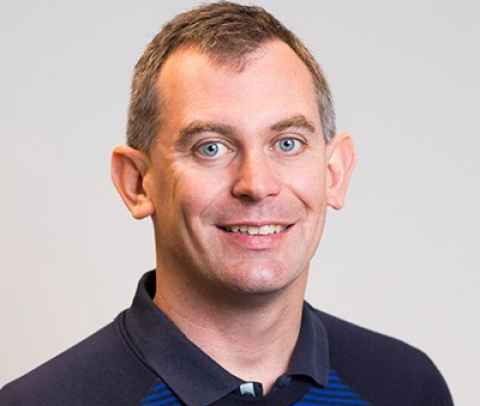Take 10 with... Duncan McGillivray
Professor Duncan McGillivray from the School of Chemical Sciences gives us 10 minutes of his time to discuss his research about the thin interface where two different materials meet.

1. Describe your research topic to us in 10 words or less.
Molecular studies of biologically-relevant colloids and surfaces.
2. Now describe it in everyday terms!
I work to understand, and even sometimes control, the thin interface where two different materials meet - particularly those that are relevant to biological processes (such as cellular membranes, or the coatings on plastic nanoparticles). Although these interfaces might be only a few molecules thick, they can profoundly affect how systems behave.
3. What are some of the day-to-day research activities you carry out?
My research involves occasional intense work at large scale government labs overseas, doing neutron and X-ray scattering from samples, and preceded by lots of sample preparation and testing in the lab and followed by lots of data analysis and head-scratching.
4. What do you enjoy most about your research?
The variety of problems and challenges that pop-up, the unexpected areas that we might end up heading to, and working with the big machines and instruments in major government labs around the world (and meeting the other people doing the same thing in the hallways in the middle of the night)
5. Tell us something that has surprised or amused you in the course of your research (it could be a discovery, an anecdote or even a funny incident).
Travelling overseas means carrying lots of chemical and biological samples across borders. Explaining what they are to customs officials, and how harmless they are, but please don’t touch them, can be interesting. Doing it in my very rusty French when visiting a nuclear reactor in Grenoble probably stretched my skills a little too far… The life lesson here has been - always, when crossing a border with chemicals, be clean shaven. Even better, let someone else carry the samples.
6. How have you approached any challenges you’ve faced in your research?
Persistence, and networks. Finding who is the right person to help is very often 90% of solving a problem.
7. What questions have emerged as a result?
Almost always answering one question has led to another - from method development to new areas of research.
8. What kind of impact do you hope your research will have?
I hope to have as much impact on other people’s research as theirs has had on mine, and to be able to have a good answer to the question of”what do you do” at barbecues.
9. If you collaborate across the faculty or University, or even outside the University, who do you work with and how does it benefit your research?
Some of my most important collaborators are those who run the instruments we rely on at the international labs. They work on such a wide variety of problems from people who come to their facilities that they are able to help us make connections with other researchers, and also help us drag every last piece of value form our measurements. They also provide some surprising insights from their different perspectives.
10. What one piece of advice would you give your younger, less experienced research self?
Stop, collaborate and listen. And move outside your comfort zone.